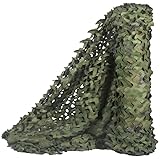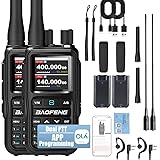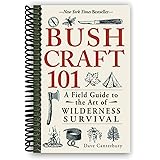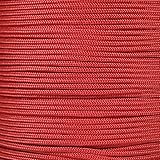Exploring Unconventional Relief: Is Soy Sauce a Cough Remedy in the Outdoors?
Picture this scenario: a crisp autumn night unfolds during a long-awaited camping trip, with the stars scattered across the inky sky. Suddenly, a persistent cough emerges, disrupting the peaceful solitude and raising concerns about comfort. Conventional cough medicines are often left behind in the haste of packing, leaving many outdoor enthusiasts searching for quick relief. It is in moments like these that unconventional solutions, much like the intriguing idea hinted at in the video above, might be explored.
The concept of using everyday ingredients for unexpected ailments has long been a topic of discussion among survivalists and those committed to self-sufficiency. For instance, the thought of soy sauce cough medicine might initially sound quite unusual; however, in situations where medical supplies are limited, creativity often becomes a necessity. Understanding the potential and the limitations of such remedies is vitally important for anyone venturing into the wilderness.
The Origins of Unconventional Cough Remedies
Throughout history, people have sought relief from coughs using ingredients readily available in their immediate environment. Before the advent of modern pharmaceuticals, traditional folk remedies were passed down through generations. These remedies often included natural components like honey, lemon, various herbs, and even surprising substances, as their perceived medicinal properties were utilized.
Coughs, while typically just an irritating symptom, can sometimes indicate more serious underlying conditions, especially when experiencing the harsh elements outdoors. Therefore, the exploration of any cough remedy in a survival context must be approached with both an open mind and a significant degree of caution. Many of these historical methods were based on observation and anecdotal evidence rather than rigorous scientific testing.
Understanding the “Soy Sauce Cough Medicine” Idea
The notion of using soy sauce cough medicine as a treatment for coughs appears to stem from various anecdotal reports and internet discussions. One theory suggests that the saltiness of soy sauce might help to soothe a sore throat by drawing out fluid, which is a mechanism often associated with gargling with salt water. Another idea proposes that some people find the umami flavor or the act of swallowing a distinct liquid to be a distraction from the irritation.
However, it is crucial to recognize that credible scientific evidence supporting soy sauce as an effective cough remedy is largely absent. While it is a common kitchen condiment, its primary use has not been validated for respiratory relief. Despite this lack of formal proof, the widespread sharing of such remedies highlights a common human tendency to seek comfort and solutions when conventional options are unavailable, particularly in outdoor scenarios.
Navigating Coughs in the Wilderness: Essential Preparedness
Being prepared for minor ailments like coughs is a fundamental aspect of responsible survival medicine and outdoor planning. A well-stocked first aid kit should always be a priority, containing items specifically designed for various health issues. Cough drops, over-the-counter cough syrups, and pain relievers can make a significant difference in comfort levels.
Conversely, relying solely on untested remedies like soy sauce cough medicine could potentially delay appropriate treatment if the cough indicates a more severe condition. Therefore, a balance must be struck between improvisation and adherence to established medical advice. Prevention, such as staying hydrated and avoiding extreme temperature changes, is often the best strategy when adventuring in the outdoors.
Basic Strategies for Outdoor Cough Relief
Even without specialized medication, several common-sense approaches can be employed for outdoor cough relief. These strategies focus on alleviating symptoms and supporting the body’s natural healing processes. Simple adjustments to one’s routine can offer considerable comfort.
- Hydration: Drinking plenty of water or warm liquids helps to thin mucus, making it easier to clear. Herbal teas, if available, can also provide soothing warmth.
- Rest: Allowing the body sufficient time to recover is paramount, especially when facing a cough. Physical exertion can exacerbate symptoms.
- Humidity: In dry environments, increasing the humidity around your sleeping area, perhaps by boiling water (safely, of course), can help moisturize airways.
- Elevation: Sleeping with your head slightly elevated may reduce post-nasal drip, which is often a contributing factor to nighttime coughing.
While these methods might not offer an instant cure, they contribute significantly to managing symptoms. In contrast to the speculative nature of soy sauce cough medicine, these are widely accepted practices for general cough management.
When to Worry: Differentiating Minor from Serious Coughs
It is important to understand that not all coughs are created equal, especially in an outdoor preparedness context where medical help might be distant. A persistent cough accompanied by other alarming symptoms should never be ignored. Distinguishing between a minor irritation and a potentially serious health concern is a critical wilderness first aid skill.
Signs that a cough might require more than a simple cough remedy include difficulty breathing, chest pain, fever, chills, persistent wheezing, or coughing up blood. In such cases, immediate steps should be taken to seek professional medical attention. Despite the allure of simple solutions, severe symptoms necessitate a more robust response than what a kitchen condiment could provide.
Building a Comprehensive Outdoor Medical Kit
Rather than relying on untested solutions like soy sauce cough medicine, a thoughtfully assembled medical kit offers genuine peace of mind. Investing in a robust kit designed for outdoor adventures is undoubtedly a wise decision. Such a kit typically includes a range of medications and tools to address various ailments that might arise.
Your kit should contain not only specific cough and cold remedies but also pain relievers, anti-inflammatories, antiseptic wipes, bandages, and any personal prescription medications. Items like a thermometer, tweezers, and even an emergency whistle can prove invaluable. Adequate preparation ensures that common issues, including an irritating cough, can be effectively managed without resorting to potentially unhelpful or even harmful improvisations.
Conclusion: The Practical Approach to Outdoor Wellness
While the discussion around soy sauce cough medicine is certainly an interesting one, symbolizing the ingenuity often found in survival scenarios, it underscores a larger point. Practical outdoor wellness hinges on preparedness, knowledge, and responsible decision-making, rather than on anecdotes without scientific backing. The call of the wild offers incredible experiences; however, it also demands respect for its challenges and a commitment to personal safety.











